Prof. Afrim Hoti: The ending of the war in Ukraine will influence Balkans
- Oops!Something went wrong.Please try again later.
Professor at the Department of Political Sciences at the University Pristina and visiting professor of different universities in European countries and USA, Afrim Hoti (PhD) in an interview talks about his point of view to the war in Ukraine, how this event affects countries in the EU and the future of collective security.
– How does the war in Ukraine, which Russia is waging, feel in the Balkans?
– There are different perceptions in the Balkans about the war between Russia and Ukraine. All Balkan people apart from the Serbs are on the side of western countries and they are all supporting Ukraine. However, the war is perceived as an insanity, kind of a stupid action taken by Vladimir Putin, who took Ukraine as a victim, as a mechanism to fight against the western powers. This is not the first time this happens, because the Balkans have experienced something like this two decades ago, when Russia and western powers started the war over Kosovo.
So the Balkans are divided now: these people and countries who support the Ukrainians and the true western concept and they are 79% of the total people of the Balkans and Republic of Serbia which is still sticking to aligning with Russia. It is more or less, I am not talking here of all Serbs, because at the same time there are some western oriented Serbs who view the war as not the right thing to do. It is my point of view, but 99% western oriented Serbs support Ukraine, but the regime in the country is Russia oriented.
– Does it affect current life in Kosovo?
– The war in Ukraine influences modern life but not directly. But indirectly, yes. It is visible, you can see some actions which come as a result of the war in Ukraine. Especially for two countries Kosovo and Bosnia and Herzegovina. And these countries were Serbian’s and have influenced Russia through Serbia. Whenever Russia wants to expand the country and move the focus not only Ukraine but also to other countries too just provoking, especially in the northern part of Kosovo and Republika Srspka. . You know, there are some kinds of initiative, some kinds of provocations, creating tension and possibly war.
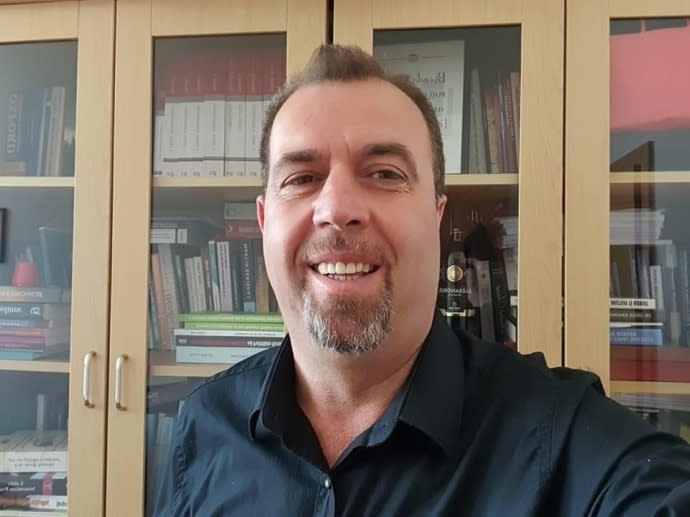
– The relations between the official Kosovo and Serbia are periodically strained, skirmishes occur on the border between the states, and barricades appear. Can this be seen as an attempt to create another point of tension in Europe?
– The last tension between Kosovo and Serbia has brought true barricades. According to the security agents' information there were people in the barricades who were ready to start the war. Others do not see any possibility to open the war. Because NATO is present in the Balkans. And that is the main argument: you can not come, or Russia, or any other countries could not come to the Balkans with NATO members stationed in Kosovo. In this regard we can talk of the tension, we can talk of the provocations, we can talk of the hot conflict but not open war because of NATO presence.
– Kosovo officials said last month that Russia made an attempt to create a new conflict in the Balkans. Is it true?
– Yes, it is, definitely is it true. Because the end of the war between Ukraine and Russia is important for them first of all. But it is also important for the Balkans. The ending of the conflict which is happening there will influence the Balkans. If Ukraine will be the winner (I am sure Ukraine will be) definitely there will be some kind of a stability and consolidation in the Balkans. Because that will be a sign for Serbia, they need to stick to the reality and one option is westernization. But Russia continues provoking. They built a center close to Nis in Serbia. This center functions as a humanitarian center like Russia is trying to help Serbia in humanitarian aims. But no one knows what exactly the support is. Many people say that there are weapons, agents, and many other stuff. The last tension was coordinated, commander from the center. Which means it is kind of a military center from Russia which coordinates,controls the situation. I'll give you a very interesting story. It was a year ago during the tension between Kosovo and Serbia. And the military machine of Serbia got ready to attack us, they were prepared… "because Kosovo, because the conflict" ets. But nobody would have imagined that the Russian ambassador would go to the army and give a speech. It is not a diplomatic practice when the ambassador goes to the army of another country. The ambassador has to look for diplomatic ways not to go to the army. It's a clear sign that Russia is using Serbian mechanisms to provoke conflicts in the Balkans. Serbia wants to be a member of the European Union, they get funds from the EU, but at the same time they are cooperating with Russia as a strategy.
– Kosovo is on the side of the Ukrainians, while neighboring Serbia shows favor with Russia. Why does this happen?
– This is a matter of concept. Kosovo has a western concept, it is a democracy, abides by the rule of law and way of living in general. Political institutions are very young here because they are new born, but institutions are built in western spirit.
Serbs are different, they had historically a true dictatorship. And the concept of Serbia was mainly based on dictatorship and also was coordination from Moscow. Whenever we speak about Serbia we immediately imagine Russia. And now they need to make a choice - are you continuing to deal with the EU or staying with Russia?
The public opinion depends on the leadership. I think somewhere on the top of the Serbian political establishment someone will come who is western oriented. Then they will move 50:50 to the West, but on the other hand they still keep links to Moscow. I am sure one of the reasons why Serbia is keeping this position is the Kosovo issue. If Serbia moves to western countries they will lose Russia’s support or Kosovo will become a member of the United Nations. Either way, I think Russia is a natural ally of Serbia.
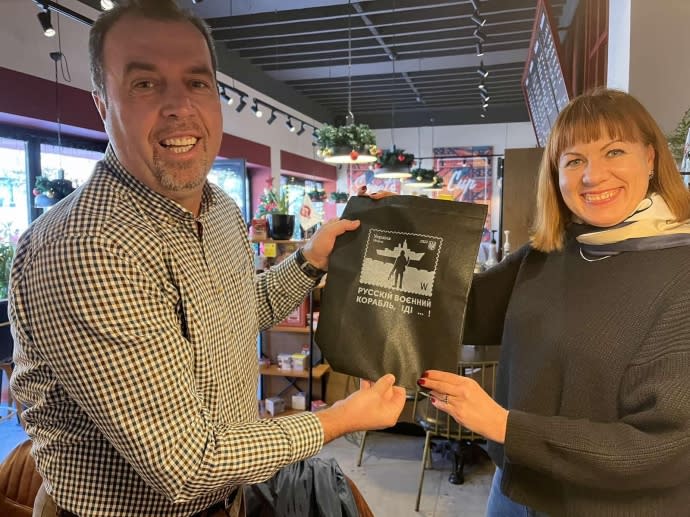
– Sometimes it is said that the conflict between Kosovo and Serbia is in the different understanding of freedom?
– Yes, I agree. I usually speak about that with students. And some phenomena including freedom, human rights, democracy, rule of law, and universal values are totally differently perceived by Russia compared to the western countries. In that sense, freedom is totally different from Serbia. The concept of sovereignty is totally different in Serbia. Western countries live with deep liberal values. When I ask you who you are, I respect your decision. When it comes to Serbia things are different - "you need to respect my desire, you need to think what I want you to think". This kind of spirit is democracy by two different sides.
– The long-term conflict between Kosovo and Serbia - what are the prospects for its resolution in the future?
– I think the independence of Kosovo is a compromise. Because if it weren't independence it would be unification with Albania. We are talking about a country where 92% of Albanians live. They compose the biggest part of the population and have a natural right to live as Albanians. But when Yugoslav rule got there, it was not a good idea to change the borders, to create, to join territories to other ones.
Kosovo remained a part of Yugoslavia, but Kosovo has the status of independence. During the Cold War 1945-1990 it was possible to press people: yes, you need to live with me, you need to talk to each other etc. But our era is the era of democracy. There are the prospects, the possible solution of living in the EU and independence. In my point of view, the only solution for the moment, especially having the resolution to live in Europe - we are part of Europe and part of the western powers. If they are not independent the obstacles will continue. Then I am sure it will create circumstances for people to demand the unification of Albania. It is not a good solution because it will open Pandora’s box. We will create new countries in the Balkans divided by ethnic lines.
You know about the problems in the north of Kosovo - it is a small territory that claims to join Serbia.
The independence of Kosovo is the only solution as a compromise.
– During wars and conflicts, propaganda plays its role. Russian propaganda takes place during the war in Ukraine. In Kosovo - Serbian. How to counteract it? Are there ready-made recipes?
– We are trying to counteract Serbian propaganda. But from my point of view we are not successful in Kosovo. Because we are limited in sources and capacities. We have a small sized diplomacy now. We do not have certain numbers of diplomats in countries which recognize Kosovo and they try to build and rebuild our country’s image. We try to create true projects. But we could not compare with Serbian and Russian propaganda, so we are small. But at the same time we are lucky because we have a country now and are allies with the most powerful countries such as the USA, UK. France, Germany. They have all needed information. So from my point of view, propaganda of Serbia and Russia is working in Russia, Serbia and Belarus maybe, not for Europe, not the western countries. Because they have true information.
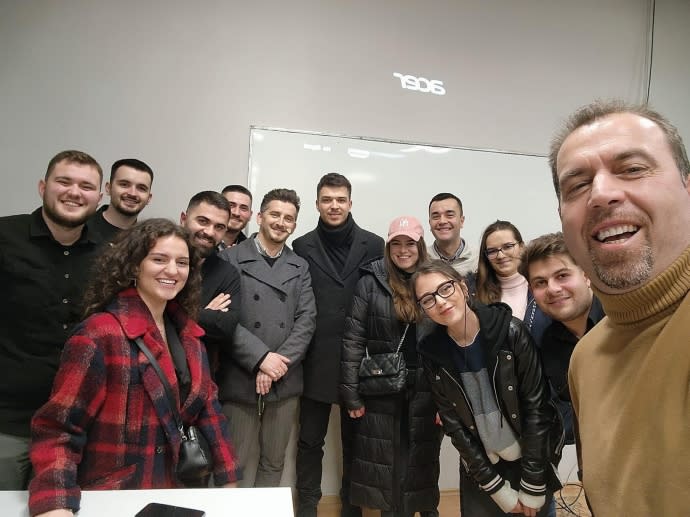
– Kosovars say that they understand Ukrainians very well, because they themselves survived the war 23 years ago. Are there parallels between these events?
– The main paralele is the war. As for me these are two different situations. Ukraine is another story then Kosovo but we have the same enemy and concept too. As we know not only Russia doesn't recognize the independence of Ukraine but also Serbia denies the existence of Kosovo as a state. But early Ukrainians and Russians were brother nations but Serbian and Kosovars have never been. And there are two different stories. Serbs and Kosovars are always very different. We are trying to build the state and they are blocking it while Ukraine is a member of the UN, a sovereign country. And one day in the morning crazy people attacked Ukrainians in their homes. Ukraine and Kosovo are the western oriented countries. Early many people here say Ukraine is the same as Russia because the language and religion are similar. The same situation was between Serbian and Bosnian because they speak very similar language. But the war changed the attitude, so in Kosovo you don't find people who don't admire Ukraine.
– About war crimes during the war in Kosovo, the countries that were part of the former Yugoslavia much has been said and written. How are those guilty of war crimes brought to justice? What part of war criminals can really be punished?
– War crimes in general have to be punished. But in Kosovo the war crimes were committed two ways. The first is crime committed by Serbian authorities which organized the war started from Milosevic, a military machine, and State Police, who organized the killing of civilians. After the war started another one - sporadic, not organized, which was committed by people of revenge who lost family during the war, who were victims. It wasn't organized by the Kosovo Liberation Army, not by the Kosovo authorities. These are individual actions and this is to be punished. And after the war Serbia declared to punish war crimes but they wanted to punish some people from the Kosovo Liberation Army. We are talking about war from more than twenty years ago. First of all there was Hague's tribunal and there many people without proof sent home as they were not guilty. The second we had court organized the UN mission in Kosovo. Many people from UCK’s commanders were convicted. They were not guilty because they had proof. By the way, propaganda told about fiction accusations: for example, people got out, killed and their organs were taken out. Nowadays not all hospitals have positions to transplant organs but we are talking about war and villages in the mountains.
Kosovo is ready and says whenever you have proof we are here, we are not hiding. We will answer if you send us an invitation to come to clarify everything. But we are still talking about propaganda, construction and plans of Serbian leadership. Especially those who are in Hague’s court: the former president, former speaker of parliament and some of the heads of UCK because they want to criminalize truth as an idea creating the state. These were the persons who promoted the independence of Kosovo and Serbian authorities consider them responsible for war crimes.
But I need to say that in those times I was a student at the University in Pristina and we had no capacity to commit war crimes, we had no force, we had no army. We started to only protect our homes and our families. I did not attack everyone, I wanted to survive.
After the war Ukraine needw to organize a tribunal by the international community and penalize war crimes.
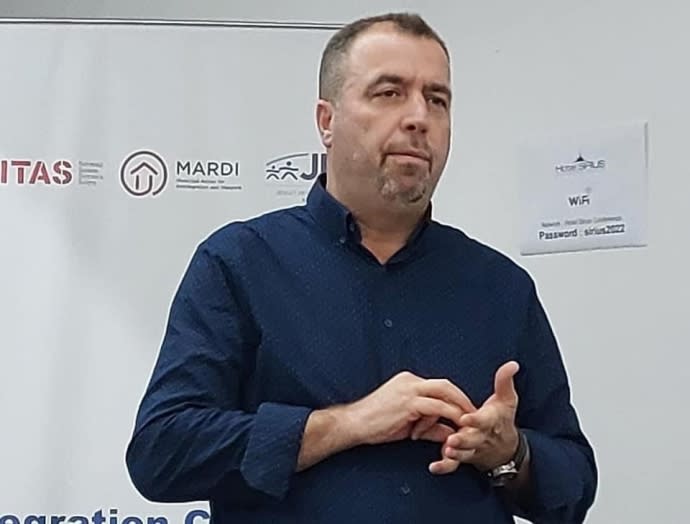
– What consequences will the current war have for Ukraine, Russia, and European countries?
– Ukraine is a victim in this war. Firstly Ukrainians are suffering until the war will end. It is the main consequence. But after the war I see the light in the tunnel. I see the western perspectives of Ukraine, I see a separation of Ukraine from Russian links once and forever. This is what it looks like - goodbye, Russia. From my point of view, based on the information I have, there will be some positive consequences for your country and positive implications for Ukraine after the war. Will involve investments for the reconstructing. Ukraine is being built in the west. People in western countries are feeling some guilt, some responsibility and we are seeing how they are helping now with weapons, humanitarian aid. I am sure the reconstruction will be a good way for Ukraine.
Russia will have consequences after this war too. Under Putin's regime Russia is isolated and will stay isolated. I don't see perspective in relation with other western countries until Putin isn't in power. And then we definitely have to talk about post-putinism, which means Russia after Putin. In this question it is crucially important who is coming after him, who will follow? If in Russia there will be some reasonable leaders who take responsibility for the war, what Putin was doing in Ukraine. I say about reparations as Germany is still paying to some countries for crimes in World War II. We need an answer: who will be there? If Russia continues and will have a leader like Putin today (I am afraid of their continuation) it would have negative consequences for Russia.
Europe is ready to find the position, because it seems Europe is in a kind of a dream, they never understood Russia but have some economic communication and said sometimes Russia is very good. Europe, the EU did wait similar from Mihail Gorbachov after the fall of communism, after the fall of the Soviet Union. The western countries gave money to Gorbachov, who promised democracy, free trade, and a market. He got the funds and saved socialism. When they understood they stopped. Now it is the second story with Putin, such a crazy person with many wars. They are ready to find the position and this will be the consequences. It keeps stopping the war first of all. And then this position means integration of Ukraine, Moldova, Georgia to the EU, unified and ending dependency of natural resources, especially, gas from Russia. In my point of view, after the war there will be parallel processes of integration of Ukraine to the EU and NATO. These are two main things for your country.
– Will the role of international institutions change in terms of security guarantees?
– Yes, after the war will change, not now. It is complicated. It will be a chance to change the security architecture. They need to intervene in Ukraine's airspace and protect it as Zelenskyy said nothing to do on the land but protect the airspace. The protection of the airspace means direct involvement and currently it is not possible. But in the new one especially based on those who will come to Russia it will definitely change. The change means to include Ukraine under the western umbrella and bring it to NATO. After the war it will change the security architecture. You see Russia is crazy, Putin is crazy but they never try to attack the NATO countries. They understand NATO’s doctrine and NATO’s protection.
The UN is another story. As for me it will be the moment to change the UN too. There are many discussions on how to change the activities of the UN which is a quiet big and a quiet slow old organization. After the war in Ukraine I see the possibility of changing the UN. It doesn't make sense after the invasion, the attack on the sovereign country, which is among the founding countries of the UN and a member of the Council of Europe. Because the UN is an organization of peace, stability and human rights, principles of the charter and we have opposition things today. After the war I also see some possibility of changing the UN’s system.
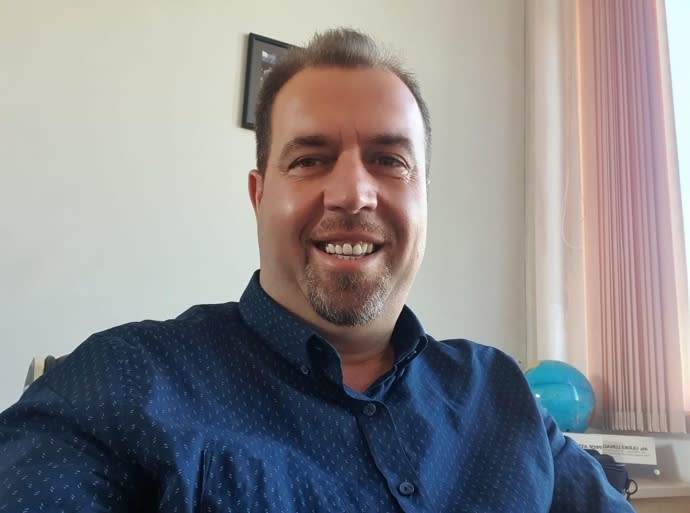
– How to deter aggressors and prevent further wars in the future?
– It is definitely complicated. It is not a new idea because attempts to stop aggressors came from the previous century. The first moment was the Kellogg-Briand Pact in 1928 so the American States secretary and the ministry of foreign affairs of France signed this agreement to give up from the war. So to impose whatever agreement with the countries to come to the table and to find some solution. We had formally the documents but wars were going on. Intention for a war country needs a big power. The circumstance nowadays because of atomic weapons. This is really complicated, but what do I see? I see the changing of the security system at the UN - to bring new powers on board. The situation changed and today we have not one as after World War II. This is a global sense, regionally is NATO. People in Kosovo want to live in the EU, membership in the Council of Europe, but for me crucially is a membership in NATO. We have no capacity to send the tanks and jets, we have the capacity to prepare some men and women in a military strategy. It is integration to NATO because there are security garanties. If the country becomes NATO member, I am sure, the war as in Ukraine now will be impossible.
– Kosovo supports Ukraine and Ukrainians, but until now Ukraine has not officially recognized the republic's independence. Are there such prospects in the future?
– I think this situation will change. I guess that Ukraine didn't recognize Kosovo due to regional problems in Luhansk and Donetsk, Crimea but in new circumstances we don't see any reason to not do it. To compare Luhansk and Donetsk People's Republics with Kosovo as for me it is using Russian or Serbian propaganda’s messages.
We belong to the same western concept, and have the same way of developing our country, similar values. So in the future I see the prospects to recognize Kosovo by Ukraine. Maybe after the war this situation will change. Now Ukraine is in the war and needs help and support.
But even without recognition of Kosovo by some countries we have the perspective to become a member of the UN and the EU. And this fact will be the basis of agrement almost all other countries and get recognition by the international community. Kosovo now is recognized from 22 out of 27 members of the EU and 97 states around the world. We say thanks if some country recognizes us but if not it does not mean that Kosovo doesn't exist. If the child was born it wouldn't return to the mother's belly. Exactly the same with our country, you may not recognize us, but don’t prevent us from growing and developing a new country.
I was invited to university in Romania, they say: yes, you are the professor from Kosovo, you could enter Romania. But they don't recognize my country. I don't understand why. During international sports events Kosovo’s football team on TV is labeled with small letters but other countries - big letters. Never mind, I am sure the situation will change.
Iryna Synelnyk

